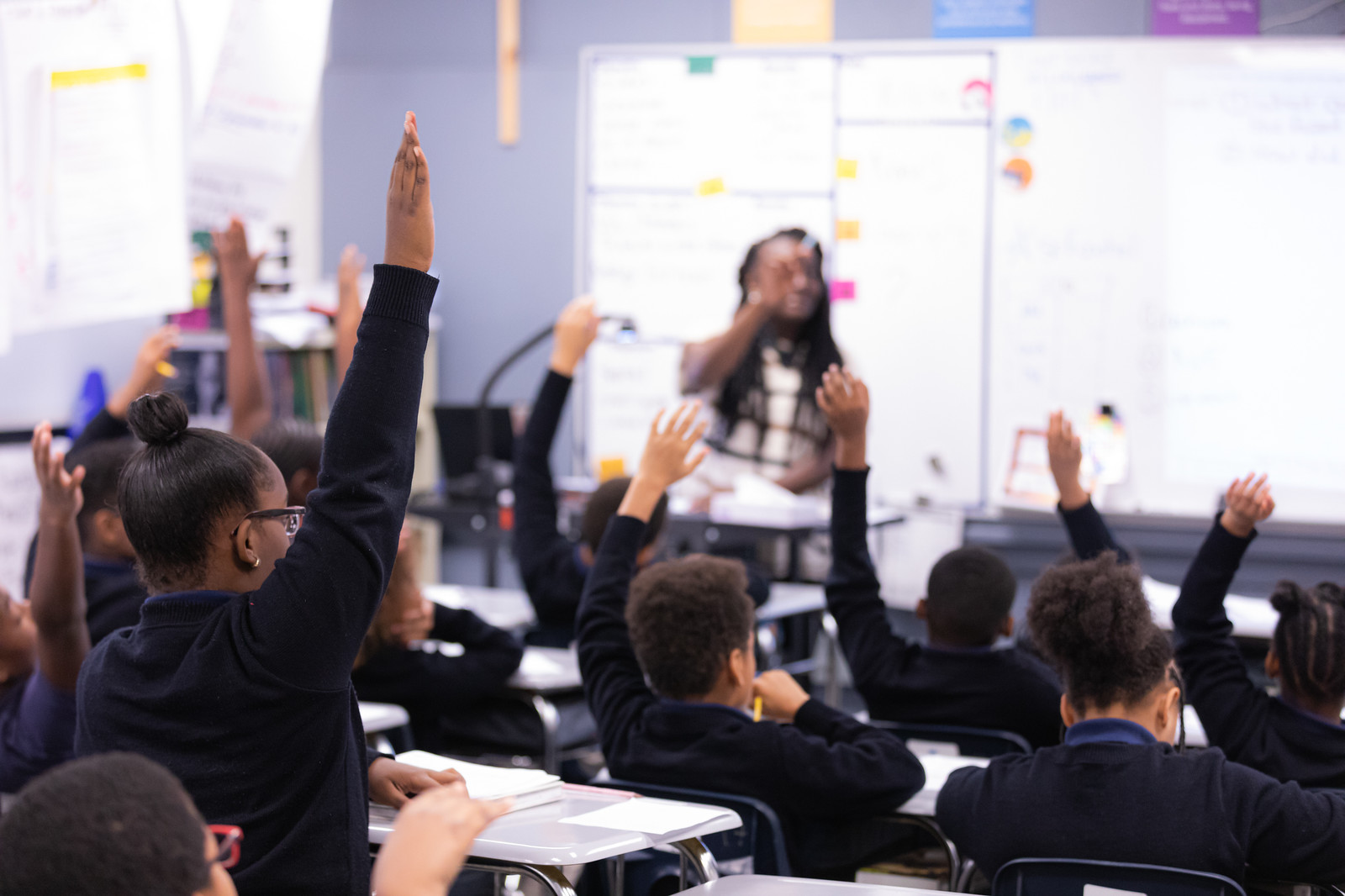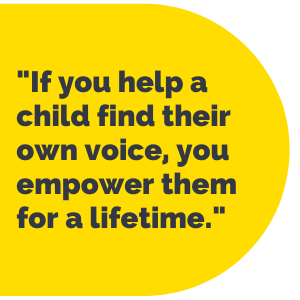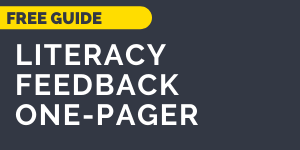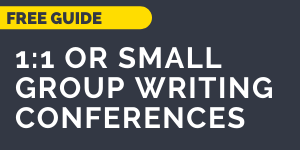
There were six magic words. Six words that signaled Amani, a student in Ebony’s 5th grade class, was preparing to get laser-focused.
“Ms. Lawhorn, can you check this?”
When Ebony was in middle school, she remembers struggling to start writing assignments—not knowing the strength of her own voice, or even if she had one. As a teacher, she knew things needed to be different for her students. And that meant what she said next to Amani would make all the difference.

At a time when many of us are trying to figure out how to replicate in-person instruction across distances, it helps to remember that one of the most powerful things we can do as teachers doesn’t need to happen in a physical classroom at all.
As Amani could tell you, in Ebony’s class, feedback isn’t the response to student writing—it’s what drives it.
The way we speak to students reminds them of precisely who we think they are, signaling our faith and confidence in students’ abilities.
“Her feedback boosted my confidence,” reports Amani. “I secretly would sit there not thinking what I wrote was right, but then I’d go up to meet with her one on one and her feedback would make me realize I actually was doing well and I could do this.”
Creating a Learning Partnership
How do we create this atmosphere? One way is viewing every chance to give feedback as the opportunity to build a learning partnership—or as Zaretta Hammond calls it, an alliance. Hammond argues that asset-based feedback is:
- Actionable
- Specific and in the right dose (focused on 1-2 things)
- Timely
- Delivered in a low-stress, supportive environment
This resonated for us as a hallmark of the program we’ve worked to build at Uncommon: one that nurtures student growth and pushes them to be their best selves as writers. As Hammond notes, “Contrary to what we may think, simply giving feedback doesn’t initiate change. … You have to be able to be in conversation with students who are trying to stretch themselves.”
So, what might that look like? Here’s an example of the type of written feedback you’d find on Amani’s paper, which draws from Hammond’s writing on culturally-responsive teaching:
Great work choosing evidence that links closely to your claim! As a writer, one thing you might try next is making that connection clear in your analysis. After your evidence, try revising your sentences so they answer the “so what?” I’m excited to see you tackle this next step! 😊
If we dissect this feedback, a few principles surface:
- Notice and name what students are doing well
- “I see you’ve already…” or “I see you know how to…”
- “Remember when X was so hard? Now you do it so well!”
- When giving constructive feedback, affirm students’ identities as writer and partners
- “I think, as a writer, you’re ready to…”
- “I wonder if you might…” or “I wonder what would happen if…”
- Provide actionable steps
- “… this moment, because it’s the turning point, would be a great place to add the character’s thoughts.”
- “… revise this thesis so it makes a how/why argument.”
- Summarize at the end, acknowledge the challenge, affirm the student
- “You’ve made progress on [your goal] and I think you’re now ready to [xxx].”
- “Your [xxx] was so strong, and I’me excited to see your progress on [xxx].”
The benefits of this approach extend beyond students hearing our feedback and toward helping them craft their sense of identity as writers and thinkers. This matters even more so for students whose voices have been actively and systemically marginalized in our culture.
If you speak up for a child, you’ll empower them for a moment, Ebony points out. But if you help a child to find their own voice, you will empower them for a lifetime. You can see the full guidance we provide on this type of feedback here.
Use Conferences to Deepen Your Alliance
These principles can help guide all of our interactions with students. For example, another place we can build students’ sense of efficacy is in writing conferences, which can work just as well over video conference as in person. “Ms. Lawhorn had a huge impact on us,” Amani reports, “because she inspired our ideas and helped to make our writing better by thinking more and digging deeper.”
Here’s the guidance we provide for conferences, based on Hammond’s asset-based feedback protocol.[1] If you’d like, you can watch a demo video that Steve filmed with our colleague, instructional fellow Shereka Ellington below.
It probably won’t surprise you that high-quality, individualized feedback correlates to higher student achievement, but that’s not the most important reason to commit to it. High-quality, asset-based feedback helps connect us to our students, encouraging them to see us as allies and themselves as writers with something to say.
In that spirit, we’ll give Amani the last word. Here’s her advice to teachers: “Please be patient.” Amani knows, as we wish all students to know, that we are on this journey together.
Empowering students to play a role in their own development requires time and intentionality, but it will pay off mightily in the long haul.
Now that’s feedback we can take to heart.
Click below for PDFs of all the resources referenced above:
[1] Hat tip to Mary Elise Nolan, Achievement First’s director of ELA and writing, who piloted something similar last year.






